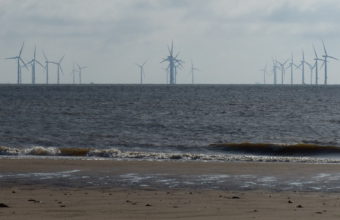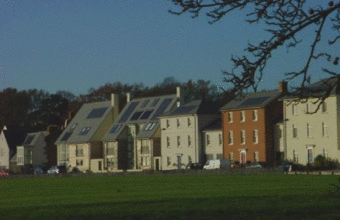Senior Research Fellow at CIED
Dr Paula Kivimaa is a Senior Research Fellow at SPRU, Senior Researcher at the Finnish Environment Institute and has an affiliation of Docent at Aalto University, Finland. She has over ten years’ experience in research dealing with the interface between environmental innovations and climate, energy, transport and environmental policies. Her recent research is focused on analysing transport and energy policy as well as intermediary organisations from the perspective of sustainability transitions. She has experience in managing several projects funded by Finnish research funding agencies. She has published scientific articles in journals such as Research Policy, Environmental Policy and Governance, Environmental Politics, Journal of Cleaner Production, and Transport Geography as well as research reports issued, for example, by the Nordic Council of Ministers and the Partnership for European Environmental Research.
Reaching the tipping point: 1.5 degrees and the 10th Anniversary of the Climate Change Act
Last week showed that the full impacts of climate change are approaching us faster than thought before. The Intergovernmental Panel on Climate Change (IPCC) published its Special Report on Global Warming of 1.5 degrees sending a message that we need to act now, not tomorrow. The previous plan to curtail global temperature change to 2 …
Driving innovation in low-energy buildings: key lessons from experience in the UK and Europe
Paula Kivimaa & Mari Martiskainen Buildings use around 40% of our total energy consumption and account for over 30% of Europe’s greenhouse gas emissions, but innovative building concepts – such as passive houses, zero-carbon buildings and whole house retrofits – are not yet widely used by the construction and renovation industry. How can we accelerate …
Intermediary actors in low energy transitions
Intermediary actors can be crucial for bringing about low energy transitions. This blog explores what they are and provides some key insights about intermediaries in low energy transitions. It has long been recognised that changing the way we produce and use energy is of crucial importance to tackle the challenges related to depleting fuel resources and …
Synergistic policy mixes are important to achieve low carbon and sustainable mobility
Achieving low-carbon and sustainable mobility systems is a challenge in the context of expanding urban areas across the world. Itâs therefore useful to take a close look at recently introduced public policies to see how they are likely to contribute (both as singular measures and jointly in a mix of other policies) in the development …
Energy Performance Certificates and renting in Brighton – From “nice to know” to improved houses?
Usually as a researcher I base my insights on the research and systematic empirical studies I carry out. However, on this particular occasion, the insights are of a more personal nature. Having started to do research on building energy efficiency policies about a year ago, I was interested to be faced with one specific policy …
Innovation supporting intermediaries needed in advancing low energy building and housing
The emergence of new innovations and their diffusion is extremely important in the field of low energy building and housing. As buildings throughout their lifecycle account for around 40% of total energy use in Europe (with over half by residential buildings), reducing the energy demand of the existing building stock and increasing non-carbon micro-generation in …





